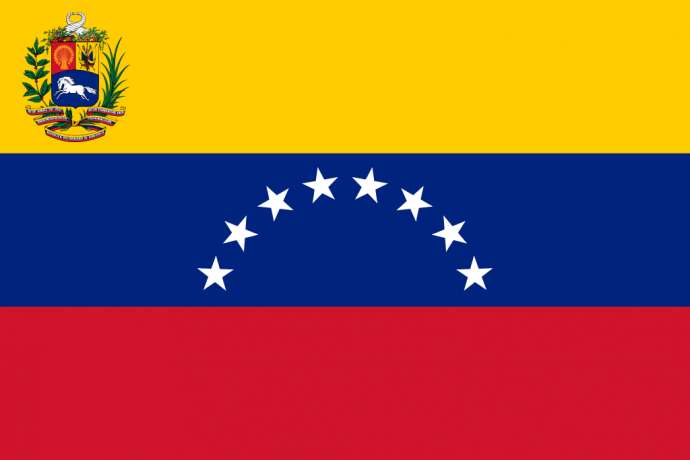STA, 11 August 2019 - The Government Office for Slovenians Abroad (Urad Vlade Republike Slovenije za Slovence v zamejstvu in po svetu) has drawn up a proposal to repatriate persons of Slovenian descent from Venezuela, following calls, including in parliament, for a government decree to this effect. The government is expected to discuss it soon after the summer recess.
A key condition for the start of repatriation proceedings is Slovenia designating the situation a grave economic and political crisis. This has already been done several times before by the Foreign Ministry, and calls have been mounting in Slovenia to help Slovenians living there.
Interior Ministry data puts the number of Slovenian citizens living in Venezuela at 335, while the total number of people of Slovenian descent there is estimated at 1,000.
Slovenian authorities have received 47 requests for repatriation after the start of the last crisis in the country.
The Office for Slovenians Abroad has told the STA that repatriation was a complex procedure and that Slovenia had very limited experience in the field. The only repatriation executed so far was for a family from Syria in 2013 due to the civil war there.
Under the law, individuals of Slovenian descent are eligible for repatriation, but in the case of the repatriation from Syria entry was also granted to the non-Slovenian family members on the basis of asylum rules on family reunification.
"Such a solution also seems to make the most sense when it comes to repatriation from Venezuela," representatives of the Office for Slovenians Abroad said.
Repatriation status can be used by individuals for a maximum of 15 months. In this period they have the right to free healthcare, Slovenian language lessons for family members, a work licence, enrolment in higher education institutions under favourable conditions, as well as to favourable treatment when applying for a job compared to third-country citizens.
To accommodate repatriated individuals, the government can set up an immigration home where basic provisions are secured, including financial aid for those below the minimum income threshold.
The 15-month status cannot be extended, meaning the repatriated individual needs to secure a different status as the basis for continued residence in Slovenia, for instance Slovenian citizenship, the status of a Slovenian without Slovenian citizenship, or an appropriate status of a foreign citizens with a residence permit.
Repatriated individuals can also return to Venezuela, this, however, needs to be organised by them independently and at their own cost.
There have also been warnings about the repatriation approach, with the head of the Foreign Ministry's consular service, Andrej Šter, recently noting in a interview that countries which have larger numbers of their citizens in Venezuela have been approaching the situation differently.
"The joint foreign service of the EU and some other countries told us that it is not advisable to start with repatriation and that it makes more sense to opt for evacuation from difficult circumstances.
"This means helping people to live with fewer problems while not luring them into selling everything and leaving without a chance of return," Šter told Dnevnik's Saturday supplement Objektiv.
He added that these people were mostly part of the middle and upper-middle class in Venezuela and would not be happy hearing upon arriving in Slovenia that they would be accommodated by the state in a dilapidated army apartment or barracks.
The Office for Slovenians Abroad commented on this by saying that efforts were also under way to help such people directly where they lived - humanitarian aid has for instance been secured for them several times through two Slovenian associations active in Venezuela.
It moreover warned that "it is of course not be expected" that all persons of Slovenian descent living in Venezuela would want to be repatriated.
The first cases of Slovenian immigrants in Venezuela date back to the period between the two world wars, but a bigger wave was recorded after WWII. A number of Slovenians, mostly from the western region of Primorska, made their way to Venezuela until the end of the 1950s. An estimated 550 to 800 Slovenians emigrated to Venezuela by 1960, the Foreign Ministry data shows.
According to the ministry, the emigration was triggered by the economic and partly political situation in the homeland at the time, as well by the desire for adventure and by existing ties to Slovenians already in Venezuela. The situation is reversed today.






